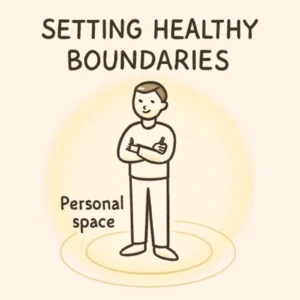Nestled amidst the picturesque landscapes of Penrith lies a place of natural beauty and serenity. However, even in this idyllic setting, the human experience can be marred by anxiety. This pervasive emotional state can disrupt daily routines, hinder personal growth, and diminish overall well-being. Fortunately, Solutions such as those offered by Boyce & Dale the Clinical Psychologist in Penrith, have honed their expertise in assisting individuals to cope with anxiety effectively. This article explores practical tips and strategies these professionals offer to help manage anxiety and regain control over your life.
Understanding Anxiety
Before diving into practical tips, it’s crucial to have a clear understanding of anxiety. Anxiety is an innate stress reaction, but when it transforms into a persistent and overpowering state, it can disrupt one’s daily functioning. It often manifests as excessive worry, restlessness, and physical symptoms such as a racing pulse or tense muscles. Anxiety may originate from a range of sources, such as stress associated with work, difficulties in relationships, financial worries, or unforeseen life circumstances.
Mindfulness Meditation
Mindfulness meditation offers an effective means of anxiety management by encouraging individuals to concentrate on the current moment without passing judgment. Cultivating mindfulness enables individuals to exercise improved control over their thoughts and emotions, with documented benefits such as reduced anxiety symptoms, enhanced emotional regulation, and an overall improvement in well-being.
Deep Breathing Exercises
Anxiety often leads to shallow, rapid breathing, which can exacerbate feelings of panic. Clinical psychologists recommend deep breathing exercises as a simple yet powerful tool to counter this. Engaging in slow, deliberate inhalations and exhalations can initiate the body’s natural relaxation response, effectively diminishing the severity of anxiety symptoms.
Cognitive-behavioural therapy (CBT)
Cognitive-behavioural therapy is a well-established therapeutic approach for managing anxiety. It entails recognizing and confronting detrimental thought patterns while substituting them with more rational and constructive alternatives. CBT equips individuals with the skills to reframe their thinking and develop healthier coping strategies to manage anxiety effectively.
Establishing a Routine
Creating a structured daily routine can help alleviate anxiety by providing stability and predictability. Psychologists recommend setting regular sleep and meal times, incorporating exercise into the daily schedule, and allocating time for relaxation and self-care activities.
Limiting Stimulants
Substances such as caffeine and nicotine have the potential to intensify anxiety symptoms and induce feelings of restlessness. Minimising or completely cutting down on the intake of these substances from one’s daily consumption can exert a notable influence on the levels of anxiety experienced. Replacing them with herbal teas or decaffeinated options can be a healthier alternative.
Social Support
Engaging with a support network of friends and loved ones is essential for managing anxiety. Talking about one’s feelings and concerns can provide relief and connection. Social support can also help individuals gain different perspectives on their worries and receive valuable feedback.
Progressive Muscle Relaxation
Progressive muscle relaxation is an approach that involves deliberately tensing and subsequently releasing different muscle groups within the body. This practice can help reduce physical tension associated with anxiety. Through a systematic approach to muscle groups, individuals can attain a deep sense of relaxation, finding relief from the symptoms of anxiety.
Avoiding Alcohol and Recreational Drugs
While it may be tempting to turn to alcohol or recreational drugs as a temporary escape from anxiety, these substances can exacerbate the condition. Psychologists strongly advise against their use as they can lead to dependency and worsen anxiety symptoms in the long run.
Journaling
Maintaining a journal can serve as a therapeutic method for processing and effectively managing anxiety. Writing down thoughts, feelings, and concerns can help individuals gain clarity and insight into their triggers and patterns of anxiety. It also functions as a valuable tool for monitoring personal development and pinpointing areas that require enhancement.
Conclusion
Anxiety is a common challenge that many individuals face, even in the beautiful surroundings of Penrith. By implementing practical tips like those shared by Boyce & Dale the Clinical Psychologist in Penrith, individuals can control their lives and find relief from the burdens of anxiety. It is essential to bear in mind that managing anxiety is an ongoing journey, and making the prudent choice of seeking professional guidance and support can be invaluable. With mindfulness, self-care, and a commitment to change, it is possible to find peace and balance in the face of anxiety.





